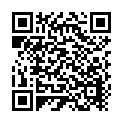
Kinship
Carrier divides up relatives differently from English. In some cases it makes distinctions that English does not, while in other cases it uses the same word for relations that are distinguished in English. In general, there is no simple relationship between Carrier kinship terms and English kinship terms.
Most kinship terms are inalienably possessed. That is, in their basic form they cannot be used as words by themselves. They must either be part of a compound word or have a possessive prefix attached. In other words, you can say “my father”, “his father”, “your father”, and so forth, but not, strictly speaking, “father”. If you want to refer to a relative without specifying whose it is, you have to use the indefinite possessor form, e.g. 'uba “someone's father, a father”.
Except as otherwise noted, all kinship terms make their plural by adding -ke, e.g. schai “my grandchild”, schaike “my grandchildren”.
“husband” kui and “wife” 'at are unusual in that they are not inalienably possessed. “wife” has the irregular plurals 'atkoo and 'atke, but the regular plural 'atne is also heard.
“father” is -ba, “mother” -loo. The parents together are -natneke or -dus̲neke.
There are two words for “daughter” and two for “son”, depending on whether the “possessor”, that is, the parent with whom the relationship is considered, is male or female. “man's daughter” is -tse', “woman's daughter” -yats'e.“man's son” is -ye', “woman's son” -yaz. If the relationship mentioned is with the father and mother together either term may be used. Thus, “their son” may be either hubuye' or hubuyaz, and “their daughter” may be either hubutse' or hubuyats'e.
“child” is s̲kui, with the irregular plural s̲keh.
Dakelh has no words exactly equivalent to the English words “brother” and “sister”. There are specific terms for “older brother” -oono and “older sister” -yat, “younger brother” -chistl'oh and “younger sister” -destl'oh. There are also broader terms which do not distinguish older from younger, but these are broader still than “brother” and “sister”. -ulhtus denotes “sister or female first cousin”, -ulhutsi “brother or male first cousin” . The relationships among these are illustrated in the following chart.

“grandmother” is -tsoo, “grandfather” -tsiyan. These terms have a broader use than in English. Your grandparents' sisters are also your -tsoo; your grandparents' brothers are also your -tsiyan. In other words, there is no distinction between “grandmother” and “great-aunt” or between “grandfather” and “great-uncle”.
“Great-grandfather” is -tsiyanjut. “Great-grandmother” is -tsoojut.
A grandchild is -chai. There is no gender distinction. This term too is broader than its English counterpart. Your brothers' and sister's grandchildren are also your -chai. In other words, there is no distinction among “grand-child”, “grand-niece”, and “grand-nephew”.
For example, if two women are married to brothers, they are in the -loh relationship.
Nieces and nephews are both -gwaz.
There are to words for “aunt” and two words for “uncle”. Four types of aunt are relevant:
Similarly, four types of uncle are relevant:
The two terms for "aunt" and two terms for "uncle" distinguish relatives by blood from relatives by marriage.
| aunts | mother's | father's |
| sister | -ak'ui | -ak'ui |
| brother's wife | -bezyan | -bezyan |
| uncles | mother's | father's |
| brother | -z̲'e | -z̲'e |
| sister's husband | -tai | -tai |
Be aware that other dialects have similar terms but may assign them different meanings. For example, some dialects distinguish between aunts and uncles on the mother's side and those on the father's side.
The indefinite form of kinship terms has two additional uses with kinship terms for people older than you are or of a higher generation. One is as a vocative, that is, as the form you use to address that person. If you want to get your father's attention, you say 'uba “(hey) dad!”. That is the vocative form.
The indefinite form is also used to refer to a relative when whose relative it is is clear from the context. Thus, if it is clear that you are talking about your own mother, you will refer to her as 'uloo rather than as sloo. Similarly, if you want to ask a friend about his or her mother, you will refer to her as 'uloo rather than as nloo. For example, you could say 'Uloo danint'oh? “How is your mother?”.
Edited up to here.Cousins and other distant relatives for which there is no more specific term are -nadun, plural natneke. The latter serves among other things for “family, relations” since it can include relatives of a variety of types.
“step-son” is -ulhye', “step-daughter” -ulhtse'. “step-father” is 'utai, the same as one's uncle by marriage. “step-mother” is -ak'ui, the same as one's aunt by blood.
An ex-relative may be designated by adding inle to the kinship term, e.g. su'at inle “my ex-wife”. Out of context this is ambiguous as it is also used for a deceased person. Thus, su'at inle may also mean “my late wife”.
An orphan is tsunoh, a widow or widower tsandelh.
| Essay List |  |